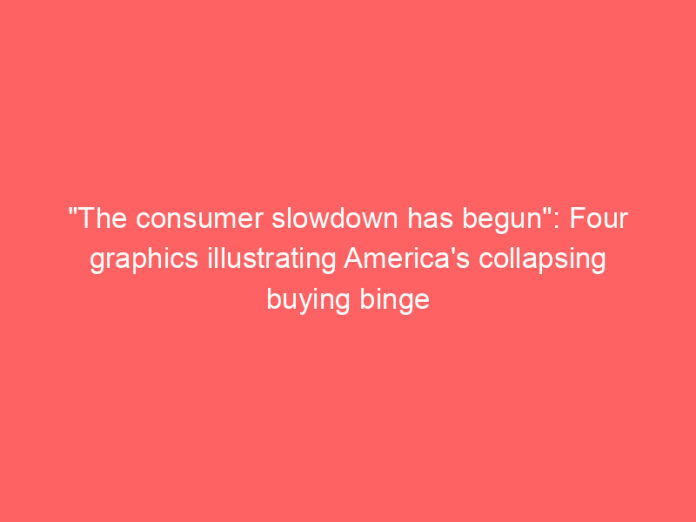
American consumers won’t be able to continue their massive purchasing binge in 2023.
Deloitte claims that the downturn in consumer expenditure has already begun.
There are four flashing indicators that indicate the impending slowdown in spending.
According to Deloitte, although Americans spent heavily in 2023 and supported the economy, the nation’s protracted shopping binge may be coming to an end. Wall Street has been celebrating the resilience of the US consumer over the past year, as spending has remained strong despite rising prices and more stringent banking regulations across the board. According to the Bureau of Economic Analysis, robust expenditure propelled economic expansion, resulting in a rapid 4.9% GDP increase during the third quarter.
However, Ira Kalish, chief economist at Deloitte, notes that there are indications that consumer strength is declining and that the massive
American spending binge may be coming to an end.
“The slowdown in consumer spending has started,” said Kalish on Monday in a note. “The impressive increase in consumer spending was a major factor in the US economy’s third-quarter growth. But it’s generally anticipated that consumer purchasing would slow down during the holidays, which will strain the finances of retailers and their suppliers.”
A slowdown in consumer spending may not indicate that a recession is imminent, but it may bring the economy closer to one as it undermines a pillar of support.
These are four new indicators that American consumers are almost at their peak.
1. Retail revenues are declining
The first drop in retail sales in seven months occurred in October, with a 0.1% decrease. This suggests that consumers would not be able to maintain the feverish rate of spending that was observed over the summer.
In October, retail sales decreased by 0.1%. United States Census Bureau
According to Kalish, a number of variables, including slower employment growth, slower price increase, and a drop in savings rates as Americans pay off their student loan amounts, are likely to be to blame for the slowing spending.
“All things considered, the retail sales data indicates a deteriorating state of the consumer industry. This was anticipated. It was not anticipated that the economy would increase as dramatically in the fourth quarter as it did in the third,” he continued.
2. Intentions to spend have completely changed
According to Deloitte’s spending intentions index, Americans’ purchasing intentions have drastically decreased over the previous several months, which suggests that the downward trend in retail sales may continue.
According to the October indicator, customers anticipated cutting their spending by 18% on average over the next four weeks. They also anticipate making 20% less investments and savings at that time.
The intentions of Americans to spend money are at an all-time low. Deloitte Perspectives
That is a significant reduction from summertime budgetary goals. The largest number the index has seen all year was in July, when consumers indicated they intended to raise their spending by 5% over the following month.
3. Individuals are lowering their grocery expenses
Grocery spending is declining, indicating that Americans are currently attempting to reduce costs even in critical areas of their budget.
In October, Deloitte’s Food Frugality Index reached its highest value of the year, 109.1. A higher grade for frugalness indicates actions such as buying inexpensive ingredients, acquiring fewer items than desired, or narrowing down grocery lists to only the necessities.
US customers are more inclined to reduce their grocery expenditures. Deloitte Insights
4. The state of the economy is deteriorating
In the US, Deloitte’s financial well-being index dropped further, from 93.7 in October—a 12-month low—to 90. According to the company, this shows consumers’ growing pessimism about their current situation and future financial security.
Compared to the summer, consumers’ feelings over their personal finances are worse. Deloitte Perspectives
The company also noted that only 40% of US respondents thought they would have enough money in five years to live their best lives.
Compared to surveys such as the Conference Board’s Consumer Confidence Survey, which assess Americans’ opinions about the economy but not necessarily their personal fortunes, the financial well-being index is more intimate.














































